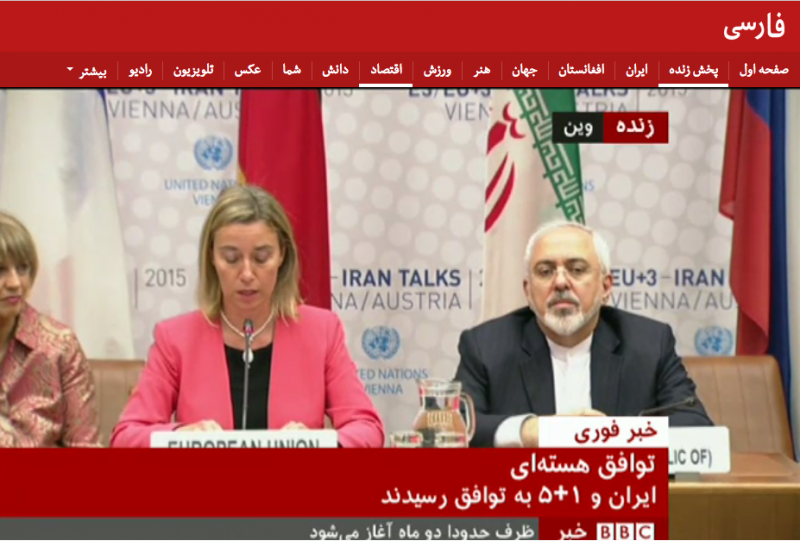
Frederica Mogherini and Javad Zarif announce their arrival at the final nuclear agreement in Vienna Tuesday morning following their final meeting.
The deadline was Monday night, and many were sure that an agreement would be a done deal before the day's end. But there would be one more delay before the two long years of negotiations over Iran's nuclear program, which began with moderate Iranian President Hassan Rouhani's administration in 2013, would come to a close.
#IranTalks done. We have the agreement. #IranDeal
— Federica Mogherini (@FedericaMog) July 14, 2015
A deal was announced in the early hours of Tuesday morning, and on his way to the final meetings, Javad Zarif, Iran's Foreign Minister and head of the Iranian negotiation team, told the press:
We are reaching an agreement that is not perfect for anybody, but it is what we could accomplish, and it is an important achievement for all of us. Today could have been the end of hope on this issue. But now we are starting a new chapter of hope.
Iranians both inside and outside of the country are welcoming the deal as a harbinger of hope. Economic progress is expected, alongside a cautious sense of optimism for the countries well-known human rights concerns.
#IranDeal shows constructive engagement works. With this unnecessary crisis resolved, new horizons emerge with a focus on shared challenges.
— Hassan Rouhani (@HassanRouhani) July 14, 2015
Nuclear Accord with Iran is a Victory 4 Diplomacy & Peace http://t.co/WgOAm3ySpR #IranDeal #IranTalksVienna by @ICHRI pic.twitter.com/ake4y4lvyH
— Omid Memarian (@Omid_M) July 14, 2015
this should be day of (cautious) celebration for human rights defenders, breath of fresh air, inspiration to work harder.
— sarah grow (@podocnjace) July 14, 2015
What will the agreement mean?
A Joint Comprehensive Plan of Action will be soon released, but here are the basics that are expected from the deal:
- Iran will be prevented from producing a nuclear weapon for at least 10 years, with new provisions for inspections of nuclear and military sites.
- Iran is expected to continue under the United Nations arms embargo for five more years, although this could end if the International Atomic Energy Agency clears Iran of any plans to create nuclear weapons.
- UN inspectors will potentially be able to press for visits to Iranian military sites, however, the details of this agreement are unclear, as this was a point to which Iran's Supreme Leader was firmly opposed.
- Iran stands to receive around $100 billion in assets frozen overseas and see an end to European oil embargo and various restrictions on Iranian banks.







4 comments